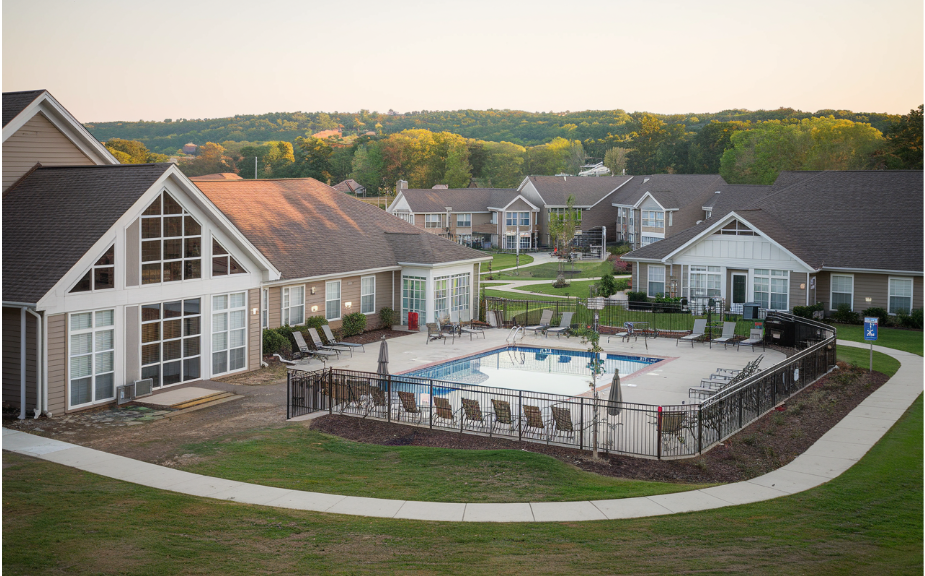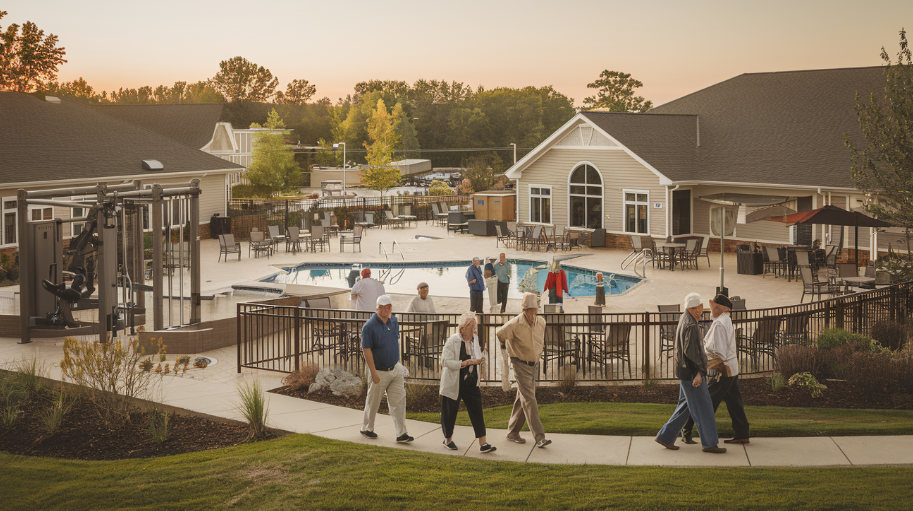In today’s increasingly connected world, the significance of social engagement cannot be overstated, particularly for those in retirement communities. These vibrant environments are designed for comfort and care and to foster meaningful resident interactions.
By offering a variety of activities, from group outings to workshops and social clubs, retirement communities create excellent opportunities for individuals to build friendships and share experiences.
This blog explores how these communities promote a fulfilling social lifestyle, highlighting the benefits of connection and camaraderie in enhancing residents’ well-being and quality of life.
Is one of your family members thinking about transitioning into retirement? Click the following link to start looking at retirement communities in Canada.
Outings
Planned outings are a cornerstone in promoting a social lifestyle for older adults residing in retirement communities. These excursions, whether to local attractions, parks, or cultural events, provide residents with an enjoyable break from their usual routines and a chance to explore new surroundings.
Such experiences stimulate conversation as participants share their thoughts and feelings about the outing, fostering deeper connections with one another.
Moreover, group outings can help alleviate feelings of isolation that some individuals may experience.
Residents are encouraged to interact, collaborate and form lasting friendships by engaging in shared activities. Whether visiting a museum, enjoying a picnic, or attending a concert, these communal experiences enrich the community’s social fabric, enhancing emotional well-being and a sense of belonging.
Ultimately, planned outings create a lively atmosphere where older adults can thrive socially and enjoy life to the fullest.
Workshops
Workshops are pivotal in fostering a vibrant social lifestyle within retirement communities. These interactive sessions cover various topics, from arts and crafts to technology classes, allowing residents to explore new skills and hobbies. Participating in workshops, individuals learn and connect with others who share similar interests, creating a sense of belonging and community.
The collaborative nature of workshops encourages conversation and teamwork, as residents often work together on projects or share ideas and experiences. This interaction helps to break down social barriers and promotes camaraderie among participants. For instance, a pottery class might spark conversations about personal stories and creative expression, leading to lasting friendships formed over shared passions.
Moreover, workshops can cater to various skill levels, ensuring everyone can participate and feel included. Inclusivity is vital for those who may have previously felt apprehensive about engaging socially, providing them a comfortable environment to connect with others.
Social clubs
Social clubs are instrumental in cultivating a lively and engaging atmosphere within retirement communities. These clubs cater to various interests and hobbies, from book clubs to gardening groups and game nights. By providing a structured yet informal setting for residents to come together, social clubs offer a perfect opportunity for individuals to forge connections and nurture friendships based on shared passions.
Participation in social clubs fosters regular interaction, allowing members to bond over common goals and activities. For example, a gardening club might not only share tips on plant care but also facilitate deeper conversations about life experiences, gardening stories, and even family traditions. Such exchanges enrich residents’ social lives, helping combat loneliness and promoting a sense of belonging.
Moreover, social clubs encourage participation from all residents, regardless of their background or interests. This inclusivity ensures everyone can find a niche where they feel valued and connected. As members engage in club activities, they build a supportive network that reinforces their emotional well-being and enhances their overall quality of life.
Conclusion
In summary, retirement communities play a crucial role in promoting a social lifestyle that enhances the overall well-being of their residents. Through carefully planned outings, engaging workshops and inclusive social clubs, these communities create a rich tapestry of opportunities for connection and interaction.
By fostering meaningful relationships and encouraging shared experiences, retirement communities can help combat feelings of isolation, instill a sense of belonging, and improve emotional health.
As we reflect on the benefits of social engagement within these vibrant environments, it is clear that these initiatives not only enrich the lives of individuals but also cultivate a supportive and thriving community.




